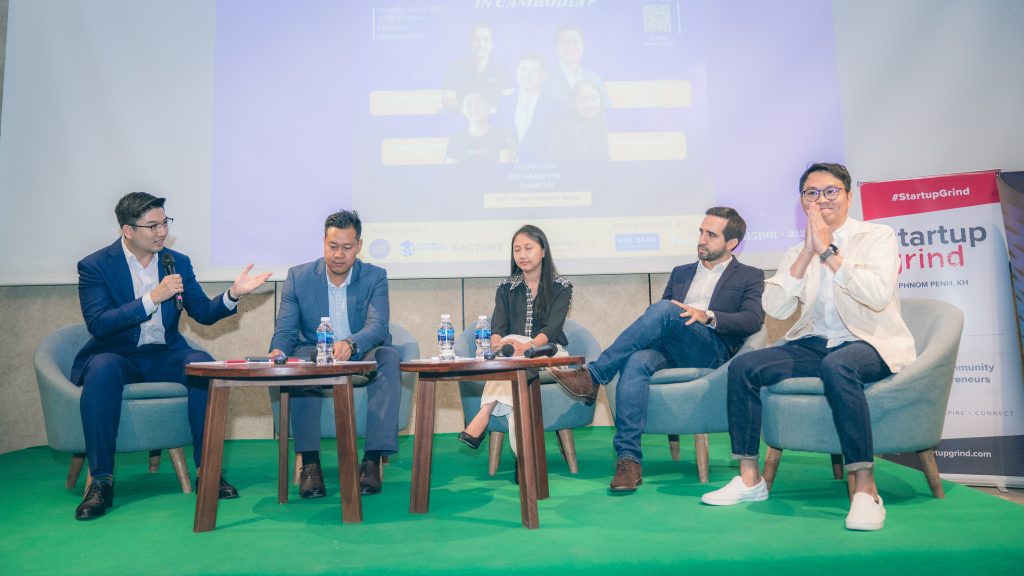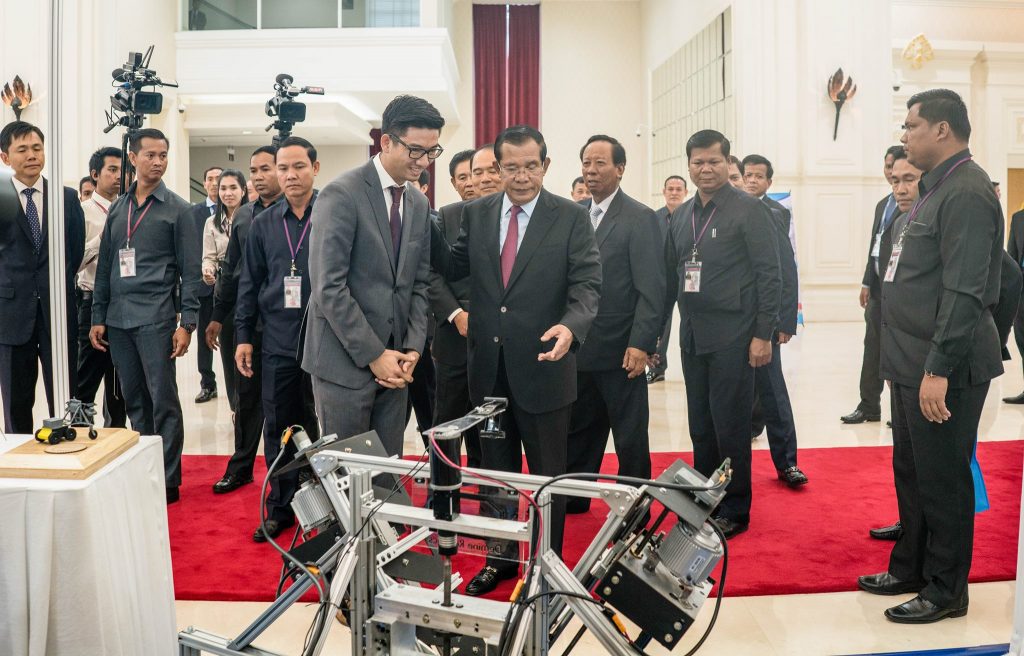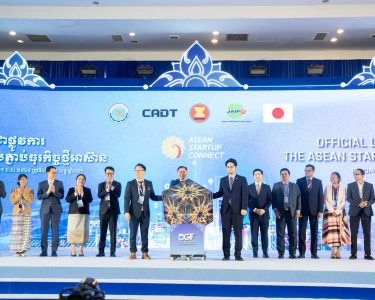Cambodia Investment Review
In episode 94 of Rising Giants, Richard Yim, a leading entrepreneur in Cambodia’s tech sector, shared an in-depth analysis of AI’s potential impact on Cambodian businesses and societal development. Alongside co-hosts Max Thornton and Dom Kalousek at Phnom Penh’s Choice Accelerator co-working space, Richard discussed AI’s practical implications, provided strategic insights for local entrepreneurs, and introduced useful AI tools.
Richard, Founder and CEO of Quantum, has been recognized in Forbes’ 30 Under 30 Asia and the ASEAN Top 40 Under 40 list. His company is a metal fabrication manufacturer, focusing on streamlining companies’ product launches. Despite global economic uncertainties, Quantum has chosen to expand its capabilities and product line, exemplifying resilience and ambition amidst crises.

Richard opened the conversation providing updates on Quantum’s business journey, revealing how despite global economic pressures the company was charting towards growth, rather than hunkering down in survival mode. “We’re aiming to increase capacity with more machines… in 5 years’ time, I could look back and say we should have just tried to survive, or I could say what a great idea to push hard when we could,” he explained.
He also detailed Quantum’s product roadmap, highlighting the successful pre-order launch of the Q-Motor, a luxury electric scooter. Richard shared Quantum’s plans for a mass-market model and hinted at other innovative projects, including ventures into industrial manufacturing and electric mobility solutions for the disabled.
Hydroponics, another area of interest for Quantum, currently faces challenges in Cambodia due to a lack of public understanding of its benefits. Richard expressed his company’s commitment to shift this perception and educate consumers on the health advantages and environmental sustainability of hydroponic systems.
ChatGPT, not the pinnacle for all business needs
As the discussion shifted to AI, Richard acknowledged the increasing buzz around the technology, emphasizing its instrumental role in Quantum’s operations for the past five years. However, he advised caution, reminding listeners that generative AI, such as ChatGPT, is not the pinnacle of all business needs. Richard however advocated for a nuanced approach, urging businesses to assess how AI could best serve their specific needs.
Discussing the distinction between general and generative AI, Richard outlined that generative AI, like ChatGPT, uses predictive algorithms based on extensive data analysis, while general AI comprehends and provides responses. However, he noted that the distinction could become hazy as AI evolves, and some responses could be statistically inexplicable.

Pondering the implications of AI, Richard envisioned a future where AI drives productivity by managing industrial operations, freeing humans to pursue creative and less repetitive roles. However, he also warned of potential inequities in AI distribution, stressing the necessity of equitable access to AI technology to avoid the risk of monopolization and exclusion of certain ‘bad’ nations.
Richard underscored the importance of infrastructure investment for rural areas in Cambodia to ensure they benefit from AI advancements equally with their urban counterparts. He also expressed concerns over possible AI misuse by companies or governments to influence certain countries or restrict citizen access to AI.
Young Cambodians should embrace AI-tools
Amid concerns, Richard also identified opportunities for young, tech-savvy Cambodians. He encouraged his university students to embrace AI tools in their studies and presentations, preparing them for the realities of a technology-driven job market. He argued against the fear of AI, advocating for a future where new technologies create new jobs rather than displace existing ones.
Read more: Richard Yim on ‘Cambodia the Emerging Market You Can’t Afford To Ignore’
Richard also urged the implementation of expert-led advisory boards for AI policy formulation. As a member of Cambodia’s National Council of Science and Technology Innovation, he expressed confidence in their potential to provide comprehensive technical inputs for informed decision-making.

Identifying low-hanging fruits for AI application, Richard suggested young Cambodians explore AI-based translation, transcription services, and graphic design. For established businesses, he recommended using AI for operational efficiency enhancement, an area he felt remained underdeveloped in Cambodia’s local market. Also cautioning against simply copying an AI-tool internationally with Khmer language overlay saying this was boring and probably not sustainable over the long-term.
Richard also shared the AI tools that have benefited Quantum’s operations. Writing tool Quilbot and database management system Airtable have significantly improved Quantum’s efficiency, exemplifying his ‘automate or delegate’ mantra for business.
Concluding the discussion, Richard left listeners with a thought-provoking statement, “Which is more dangerous, a human that thinks like a machine or a machine that thinks like a human?” His reflections underscored the complex dynamics at play as Cambodia navigates the transformative power of AI in its journey towards technological advancement.





